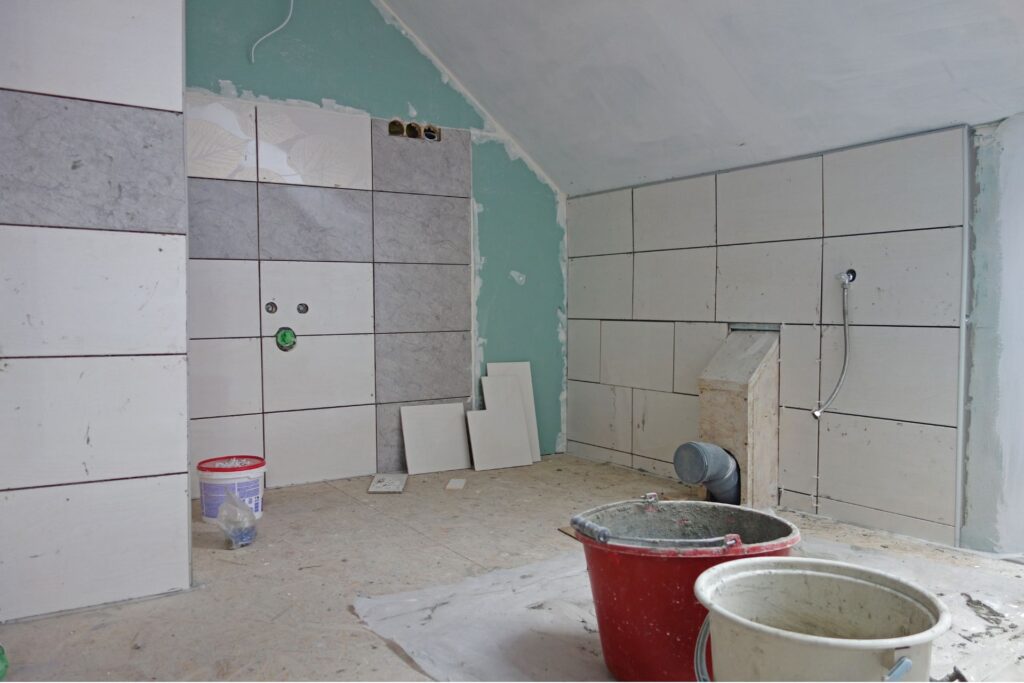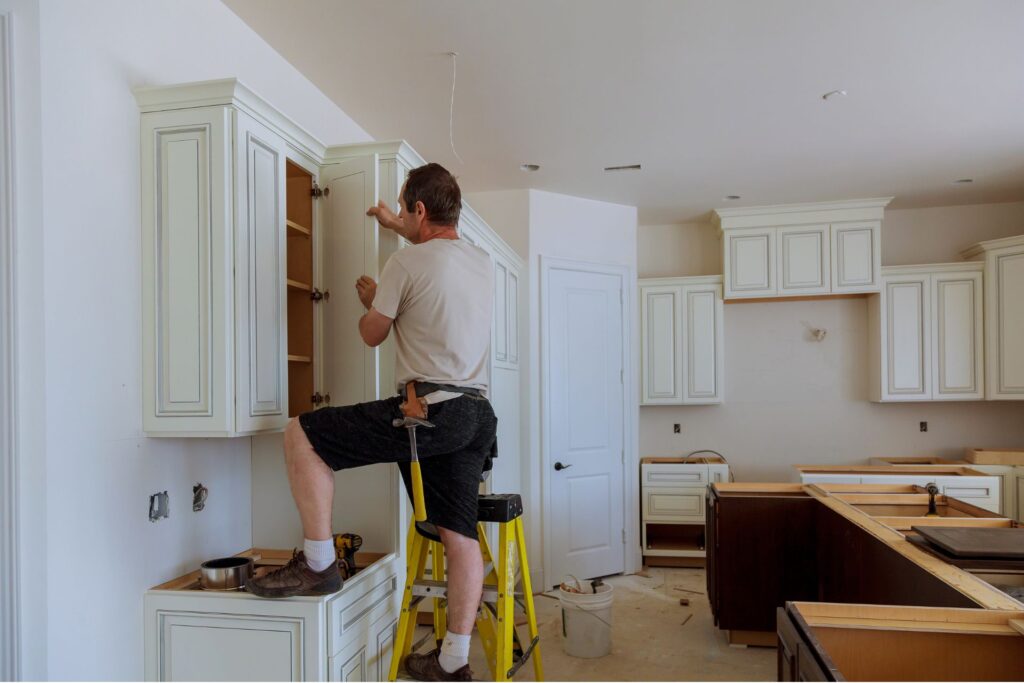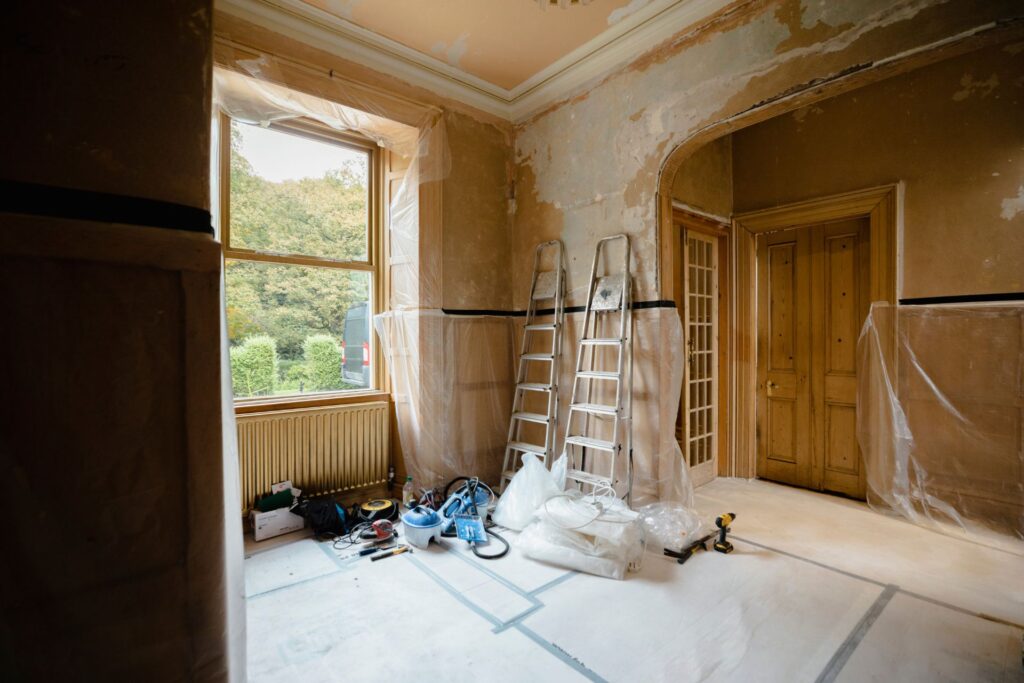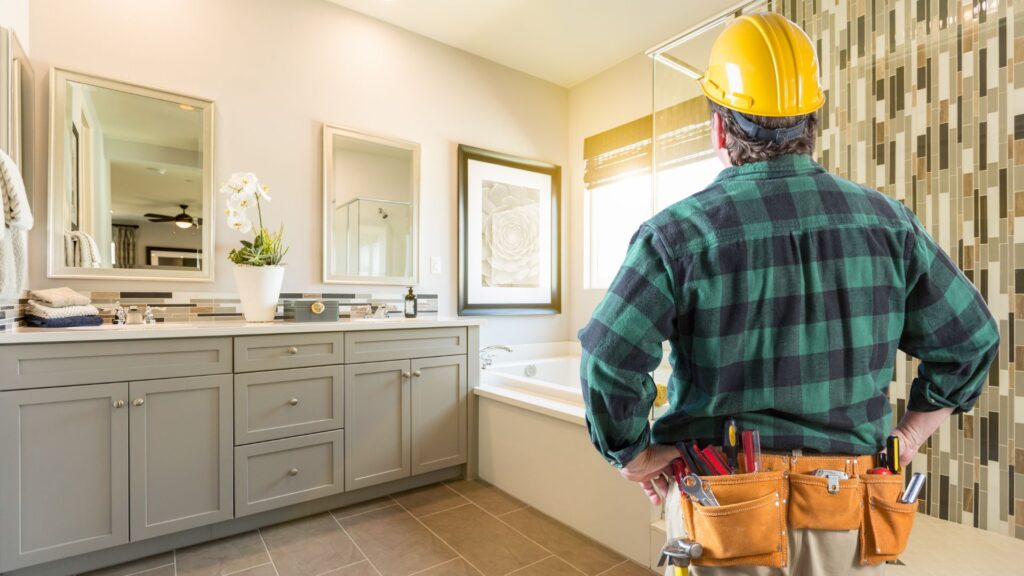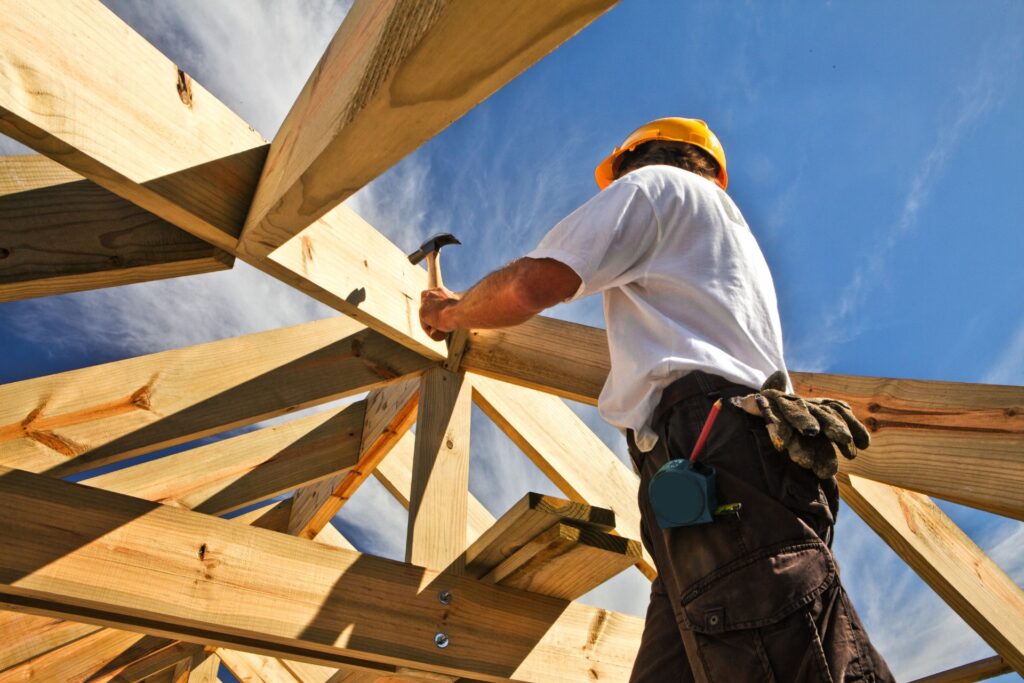Welcome to your ultimate guide on the essential questions to ask a builder before starting your dream project. Whether you’re planning a new home, renovation, or any other construction endeavor, choosing the right builder is one of the most crucial decisions you’ll make. Asking the right questions upfront not only ensures that you select a qualified and trustworthy professional but also helps set clear expectations and avoid costly surprises down the road. In this post, we’ll walk you through the key questions every homeowner should ask from verifying licenses and timelines to understanding contracts and warranties so you can feel confident moving forward with your project.
When hiring a builder, ask about their licensing and insurance, experience with similar projects, and request references from past clients. Be sure to get a detailed, written quote and contract outlining costs, payment schedules, and project timelines. Additionally, inquire about warranties, how unexpected costs are handled, and their approach to communication throughout the project. These questions will help ensure you choose a reliable, trustworthy builder for your construction or renovation.
Table of Contents
Why Asking The Right Questions Matters
When you’re planning a construction or renovation project, asking the right questions isn’t just about satisfying your curiosity. It’s a crucial part of ensuring that your project runs smoothly from start to finish. Here’s why asking detailed questions should be a top priority when working with a builder:
Establish Trust and Transparency
One of the most important elements in any successful project is trust. By asking detailed, thoughtful questions, you demonstrate to your builder that you’re invested in the process. This openness encourages clear, two-way communication, which is vital for creating a transparent working relationship. Builders are more likely to be upfront about potential challenges, timelines, and costs when they know you’re paying attention to the details. Ultimately, this dialogue fosters mutual respect and sets the stage for a collaborative partnership.
Avoid Costly Mistakes
Misunderstandings are one of the most common reasons construction projects face delays or go over budget. When you’re not asking enough questions, you might miss critical details that could lead to misinterpretations down the road. By actively engaging with your builder and clarifying every step, you significantly reduce the risk of costly errors. For example, asking about materials, timelines, and even small design elements can help prevent last-minute changes or revisions, saving you both time and money.
Peace of Mind
Let’s face it, undertaking a construction project can be stressful. There are numerous moving parts, and it’s easy to feel overwhelmed. Asking the right questions ensures that you’re fully informed, giving you a better sense of control over the project. When you have a clear understanding of what’s happening and when it’s happening, you reduce uncertainty, which in turn minimizes anxiety. Staying informed helps you anticipate challenges, make well-informed decisions, and ultimately, enjoy a smoother, more predictable project experience.
Asking detailed questions is not just a smart move; it’s a necessary one. It helps build trust, avoids costly mistakes, and provides peace of mind throughout the entire construction process. The more engaged and informed you are, the more likely your project will be a success, delivering results that meet your expectations.

Laying The Foundation For A Successful Construction Project
Before starting any construction or renovation project, asking the right questions can make the difference between a smooth, successful experience and a potential disaster. This section outlines key questions homeowners or project managers should ask builders before committing to any work. These questions are designed to help you evaluate the builder’s credentials, experience, and reliability, ensuring you make an informed decision. Let’s break down why these questions are crucial.
Are You Licensed and Insured
- Importance of Verification: When hiring a contractor, it’s absolutely vital to ensure they are both licensed and insured. A valid license confirms that the builder meets the required industry standards, codes, and legal regulations. This protects you from potential legal issues, as hiring an unlicensed contractor can result in fines, penalties, or worse project delays due to non-compliance with local laws. Insurance is equally important. It protects you from liability in case of accidents or damage on the job site. Without proper insurance, you could be held responsible for worker injuries or property damage that occurs during the project. For your own peace of mind, verify these credentials before any agreements are signed.
- What to Look For: Builders should have a contractor’s license that is valid for your region. Different areas may require specific certifications depending on the type of construction being done, so be sure to check local regulations. When it comes to insurance, ask for proof of general liability insurance and workers’ compensation. These ensure that any accidents, injuries, or damage that might happen on-site won’t result in unexpected costs for you.
How Long Have You Been in Business
- Experience Matters: Experience plays a crucial role in the success of any construction project. Builders with a long-standing history in the industry are likely to have a better grasp of managing timelines, dealing with unexpected challenges, and maintaining high standards of craftsmanship. If a builder has been around for years, it’s often a testament to their reliability and the quality of their work. Complex or large-scale projects particularly benefit from an experienced hand. Inexperienced builders may not have the know-how to navigate the challenges that inevitably arise during construction, which can lead to costly mistakes or delays.
- Track Record: It’s not enough to simply know how long a builder has been in business—ask for evidence of their work. Request examples of past projects, specifically those similar in scope and complexity to your own. Additionally, ask for client references. Previous clients can provide insights into how the builder handled their projects, including their ability to meet deadlines, communicate clearly, and resolve any issues.
Do You Have a Portfolio of Completed Projects
- Visual Proof: A builder’s portfolio is essentially their resume. It provides visual evidence of their craftsmanship, design capabilities, and attention to detail. Looking through their portfolio allows you to assess whether their style aligns with your vision. It also demonstrates their experience with various types of projects, giving you confidence in their ability to deliver the quality you’re expecting. When reviewing a portfolio, pay attention to the range of projects showcased. A well-rounded portfolio should include a variety of construction types residential, commercial, or specialized projects. It’s also useful to ask if any of their completed projects are similar to what you’re planning, which gives you a clearer idea of what you can expect in terms of quality and finish.
- Specific Project Examples: Don’t hesitate to ask for examples of projects that closely match your own. Whether you’re planning a home renovation, a custom build, or a commercial project, seeing similar work helps you gauge the builder’s competence. If they’ve successfully completed projects like yours, it’s a positive sign they can replicate that success with your project.
Can You Provide References from Recent Clients
- The Power of Testimonials: Client references are one of the most reliable ways to evaluate a builder’s reputation and performance. Speaking directly with recent clients provides you with an unfiltered view of the builder’s work ethic, communication skills, and how well they handle challenges. These testimonials often reveal important details that a portfolio can’t, such as how well the builder stayed on budget, whether they were punctual, and how they dealt with unexpected issues.
- Questions to Ask References: When you speak to a builder’s past clients, it’s essential to ask targeted questions to get the most valuable insights. Here’s a quick checklist of what to ask.
- Were deadlines met: Timeliness is a key factor in construction. You’ll want to know if the builder consistently met agreed-upon deadlines or if delays were a common issue.
- Was the budget adhered to: Cost overruns are a nightmare for any project. Ask whether the final cost matched the original estimate and, if not, why.
- How well did they handle changes: Changes in scope can happen during a project. Knowing how flexible and accommodating the builder was when dealing with these adjustments can provide insight into their professionalism.
- What was the overall communication like: Regular and clear communication is essential to keeping a project on track. It’s important to know if the builder kept the client updated throughout the process and addressed any concerns promptly.
Asking these pre-project questions is essential to laying a strong foundation for any construction project. By verifying licenses and insurance, assessing experience, reviewing portfolios, and speaking to references, you’re protecting yourself from unnecessary risks and ensuring that your project will be handled by a qualified, trustworthy professional. Taking these steps not only reduces the chance of headaches down the road but also sets you up for a smooth, successful construction experience.
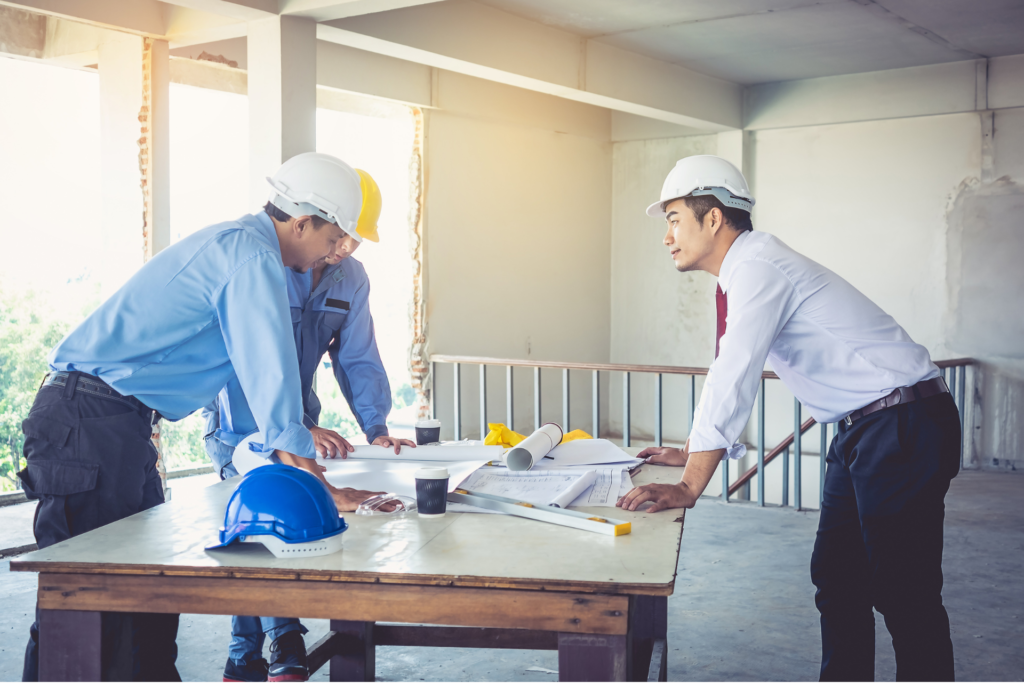
Budget And Contracts
What’s Included in the Quote
When planning any construction or renovation project, one of the most critical steps is understanding what’s included in the quote from your builder or contractor. It’s essential to ensure that the quote is comprehensive, covering everything from materials and labor to hidden costs like permits and site preparation.
Breakdown of Costs
A clear breakdown of costs prevents financial surprises later in the project. Make sure the contractor provides an itemized quote that lists every cost associated with the project.
- Materials: The cost of all building materials should be specified. Confirm if you have the option to choose more cost-effective or higher-end materials.
- Labor: Labor costs should be outlined to avoid unexpected increases. It’s also important to verify the number of workers and their estimated hours.
- Permits and Site Preparation: These are often overlooked, but necessary costs. Be sure to ask if permit fees and preparation tasks like leveling land or demolishing existing structures are included.
Avoiding Miscommunication
Get everything in writing. Oral agreements can lead to miscommunication, misunderstandings, and additional costs down the line. A detailed, itemized quote ensures both parties are on the same page. Don’t be afraid to ask questions or request clarifications—it’s your money, after all. Written quotes serve as an essential reference point throughout the project, protecting both you and your contractor.
What Payment Schedule Do You Require
A clear payment schedule helps manage cash flow and ensures that the project progresses smoothly. There are different ways contractors structure their payment terms, and it’s vital to agree on a plan that aligns with your financial situation.
Milestone-Based Payments
A typical and fair payment structure involves milestone-based payments, where you make payments as specific portions of the work are completed.
- Initial Deposit: Contractors often require a deposit to cover upfront costs like materials. This is typically a small percentage of the total project cost.
- Progress Payments: As the project progresses, payments are made based on reaching specific milestones, such as completing the foundation, framing, or plumbing.
- Final Payment: The last payment is usually made once all work is completed to your satisfaction.
Avoiding Red Flags
Be cautious if a contractor requests a large upfront payment. A significant deposit can be a red flag, as reputable builders usually request small initial payments with the remainder spread out across the project. If a contractor demands more than 25% of the total cost upfront, consider it a warning sign and proceed with caution. Always ensure you have a clear payment structure in writing.
How Do You Handle Unexpected Costs or Changes
No matter how well-planned your project is, unforeseen issues can arise. It’s essential to ask how the contractor handles unexpected costs or changes to the original plan.
Contingency Plans
Before work begins, ensure there’s a clear process for handling changes or additional costs. This may involve change orders, which are formal written agreements outlining modifications to the project scope. Additionally, having a contingency plan for the budget usually between 10% and 20% of the total project cost is critical. This ensures you’re financially prepared for surprises like discovering outdated wiring, water damage, or material shortages.
Budget Flexibility
When discussing your budget, make sure your contractor has policies in place to handle unforeseen issues without derailing the project. Agree on a contingency fund that can cover unexpected expenses, and ensure there’s a system for getting approval before any extra costs are incurred. A transparent contractor should outline how these situations will be communicated and resolved, avoiding disputes later on.
Will You Provide a Written Contract
A written contract is non-negotiable in any construction or renovation project. Verbal agreements or handshake deals are not enough to protect you legally if something goes wrong.
What to Include
The contract should include a thorough list of all agreed-upon terms and details. Here are the key elements that must be covered.
- Start and End Dates: Specify when the work will begin and when it’s expected to be completed.
- Payment Schedule: Include a clear payment plan, with amounts and dates or milestones for each payment.
- Scope of Work: Detail the exact work to be completed, including materials, labor, and any other relevant factors like permits or subcontractors.
- Changes and Contingencies: Define how any changes to the scope or costs will be handled.
- Warranties and Guarantees: Clarify any guarantees or warranties on workmanship and materials.
Having a written contract provides peace of mind, knowing that both parties understand their responsibilities and obligations. It also acts as a safeguard, reducing the risk of disputes down the line. If your contractor hesitates to provide a written contract, consider it a red flag, and rethink proceeding with the project.
Ensuring your project stays within budget and avoiding financial surprises starts with clear communication and solid agreements. From understanding what’s included in the quote to agreeing on payment terms and how to handle unexpected costs, every detail matters. Always insist on detailed, written quotes and contracts to protect your investment and keep your project on track.

Timeline And Project Management
When embarking on a construction or renovation project, setting realistic expectations and managing the timeline is critical for ensuring everything stays on track. Effective project management doesn’t just help to meet deadlines, but also maintains quality, budget control, and transparency. Here’s a closer look at the key factors to consider when managing your project timeline and the steps you should take to avoid common pitfalls.
What’s the Project Timeline
- Realistic Expectations: Setting a clear, realistic timeline is fundamental to the success of any project. Discussing the projected schedule with your builder early on allows both parties to establish expectations and address any uncertainties upfront. Keep in mind that various factors can influence the timeline, such as weather conditions, delays in material supplies, or even labor shortages. Asking how these potential issues will be managed is essential. For instance, how will the builder accommodate weather delays or handle unforeseen supply chain disruptions? By proactively addressing these concerns, you can ensure that the project remains as close to the original schedule as possible and mitigate any frustrations down the road.
- Milestones: Breaking the project into major milestones can help track progress effectively. Milestones might include stages like the completion of the foundation, framing, electrical work, or finishing touches. It’s crucial to ask your builder about these checkpoints and the expected completion times for each phase. This approach allows you to see progress incrementally and provides opportunities to review the quality of the work and make necessary adjustments. Moreover, having these predefined goals gives a tangible way to assess if the project is running behind or ahead of schedule, ensuring that any delays can be caught early and addressed promptly.
Who Will Be Onsite and Managing the Project
- Meet Your Project Manager: One of the most important questions to ask is, “Who will be managing my project?” Knowing the person responsible for the day-to-day management of your project is crucial. This individual, often the project manager, will oversee all aspects of the work and ensure that it adheres to the agreed timeline and budget. When meeting your project manager, inquire about their experience, qualifications, and how they’ve handled similar projects in the past. Their expertise will give you confidence that your project is in capable hands.
- Onsite Presence: It’s also vital to discuss how frequently the project manager or builder will be onsite to supervise the work. Regular onsite presence helps to catch mistakes early, ensure that the quality of work meets standards, and keep the project moving smoothly. Some builders may visit the site daily, while others might delegate most of the supervision to a trusted foreman. Clarifying this aspect can help prevent misunderstandings and ensure the project is properly managed throughout its lifecycle.
How Will You Handle Permits and Inspections
- Handling Red Tape: Securing the necessary permits and managing inspections can be a complex and time-consuming process. It’s essential to understand the builder’s role in obtaining these permits and ensuring the project complies with local building codes and regulations. Builders typically handle all the paperwork and ensure that inspections are scheduled at the appropriate stages. This responsibility is crucial because missing permits or failed inspections can lead to costly delays, fines, or even legal issues. Asking your builder about their experience dealing with local regulations can give you peace of mind that everything will be done by the book.
- Permit Delays: Unfortunately, delays in obtaining permits are not uncommon. This can be due to backlogs in the permitting office, unexpected complications in the application process, or even changes in regulations. To minimize this risk, ask the builder about their strategy for handling permit delays. Can the project start certain phases while waiting for specific permits, or are there contingency plans in place? Having a proactive plan to deal with potential hold-ups can help keep the project moving forward, even if paperwork doesn’t arrive on time.
To ensure a successful build, it’s essential to ask the right questions about the project timeline and management early on. By discussing a clear, realistic timeline, setting milestones, understanding who will be managing the project, and planning for potential permit delays, you can avoid unnecessary setbacks. Effective communication with your builder or project manager will keep everything running smoothly, and ensure your dream project comes to life on schedule and without surprises.

Communication And Problem-Solving
In any project, especially one as complex as building or remodeling, communication and problem-solving are crucial for ensuring smooth progress. This section dives into two fundamental aspects that need to be addressed early on: how communication will be managed throughout the project and how disputes or problems will be handled if they arise. Let’s break these down further to understand why these are essential and how to effectively manage them.
How Will We Communicate Throughout the Project
- Open Lines of Communication: When embarking on a project, setting clear and open lines of communication is vital for keeping everything on track. The way you and your builder communicate can make or break the experience, as misunderstandings or miscommunications can lead to delays, mistakes, and frustration. Having a communication plan from the start is essential. This should outline how frequently you will be in touch and through which channels whether it’s regular meetings, emails, or phone calls. Some builders may prefer face-to-face meetings weekly or bi-weekly, while others might lean towards email updates or project management software. Understanding these preferences ensures that both parties are aligned from the beginning.
- Emergency Protocols: In addition to regular communication, it’s critical to discuss how your builder handles emergencies or urgent changes. No matter how well-planned a project is, unexpected issues can arise such as weather delays, material shortages, or unforeseen complications with the build itself.
How Do You Handle Disputes or Problems During the Build
- Problem Resolution: Even with the best planning, conflicts or issues can arise during a project. How these situations are managed speaks volumes about the builder’s professionalism and ability to maintain a healthy working relationship. Before any work begins, it’s important to discuss how the builder handles disputes or problems that may come up. Many builders have a dispute resolution process in place, which might include mediation or a set escalation path for resolving conflicts. Understanding how your builder approaches problem-solving will help you feel more confident in their ability to navigate challenges without letting them spiral out of control. You should also inquire whether they have a contingency plan for unexpected issues and how flexible they are with modifications or change orders that might come up during the process.
- Builder’s Responsiveness: One of the key indicators of how well a builder handles problems is their responsiveness. You can often gauge a builder’s problem-solving attitude based on their past experiences and how quickly and efficiently they resolved previous conflicts with clients. To get a sense of this, ask for references or read reviews from past customers. Were issues resolved quickly and to the client’s satisfaction? Was the builder open to feedback, or did they become defensive when confronted with a problem? These insights can help you assess whether the builder will be proactive in finding solutions and how smoothly the project might run should problems arise.
Key Takeaways for Ensuring Smooth Progress
- Establish Clear Communication Early On: From setting up regular updates to discussing emergency protocols, knowing how you and your builder will communicate is essential for keeping the project running smoothly.
- Discuss Problem-Solving Approaches: Understanding how your builder handles disputes and problems can help prevent small issues from becoming major setbacks.
- Gauge Builder’s Responsiveness: Past performance often indicates future results, talk to former clients and read reviews to see how quickly and efficiently your builder solves problems.
By addressing these two critical areas upfront, you’ll help set the foundation for a successful, well-managed project where both parties feel confident and prepared for whatever comes their way. Ensuring smooth communication and problem-solving processes helps you avoid unnecessary headaches, keeps your project on track, and fosters a positive working relationship with your builder.

Warranty, Follow-Up, And Ongoing Support
Once the excitement of your new build settles, it’s essential to consider what happens next. Ensuring your investment is protected with a clear warranty and reliable post-project support can save you from unexpected expenses and future headaches. Here’s what you need to know about warranties, follow-up care, and ongoing support from your builder.
Do You Offer a Warranty on Your Work
Protecting Your Investment
When undertaking a significant construction project, getting a clear, written warranty from your builder is crucial. A well-defined warranty provides peace of mind, ensuring that if anything goes wrong after the build is complete, you won’t be left to cover the costs. It is your safety net, protecting your investment against potential defects or issues that might arise once you’ve settled into your new home or building.
Before signing a contract, ask your builder about their warranty policy. The best builders will offer a detailed, written warranty that outlines exactly what is covered, how long the coverage lasts, and the process for making a claim. Having this document in place ensures there is no confusion or gray areas regarding your rights as a homeowner or project owner.
What’s Covered
Warranty coverage typically includes two primary areas: workmanship and materials. Workmanship refers to the quality of the construction, ensuring that everything was built according to code and the agreed-upon standards. Material coverage ensures that the products used in the build, such as roofing, windows, and flooring, meet quality standards and function as expected.
Standard warranty periods vary, with common time frames ranging from 1 to 10 years. For example, a one-year warranty might cover most aspects of the construction, while structural elements, such as the foundation or framing, could be covered for up to 10 years. It’s important to understand what falls under each category, as some parts of the project may have shorter warranty periods or be handled by manufacturers (in the case of specific materials or appliances). Always ensure that you have these details in writing.
What Kind of Post-Project Support Do You Offer
Follow-Up Care
The builder’s responsibility doesn’t necessarily end when the project is completed. A reputable builder will offer post-project support to ensure everything runs smoothly. After you’ve moved in or begun using the space, unexpected issues or concerns may arise, and having a builder who checks in or offers follow-up services is invaluable.
Ask your builder what kind of follow-up care they provide. Do they offer a final walk-through to address any last-minute concerns? Will they schedule check-ins after six months or a year to ensure that everything is holding up as expected? These services show a builder’s commitment to their work and provide you with ongoing support.
Maintenance Recommendations
Beyond addressing immediate issues, it’s also important to understand how to properly maintain your new home or building. Many builders offer valuable maintenance tips to help extend the lifespan of your structure. This can include information on how to care for materials like wood, concrete, or specialized finishes, as well as advice on seasonal upkeep, such as cleaning gutters or inspecting the roof.
Proactively asking your builder for maintenance recommendations ensures that you are well-prepared to take care of your investment long after the project is complete. By keeping up with regular maintenance, you can avoid unnecessary repairs and maintain the value and integrity of your new space.
The completion of a build is not the end of your relationship with your builder. Understanding the warranty and post-project support options available is essential for protecting your investment and ensuring long-term satisfaction with your new home or structure. By asking the right questions and securing a solid warranty in writing, you can move forward with confidence, knowing that you are covered in case any issues arise. Additionally, with proper maintenance and follow-up support, you can enjoy the benefits of your new build for years to come.
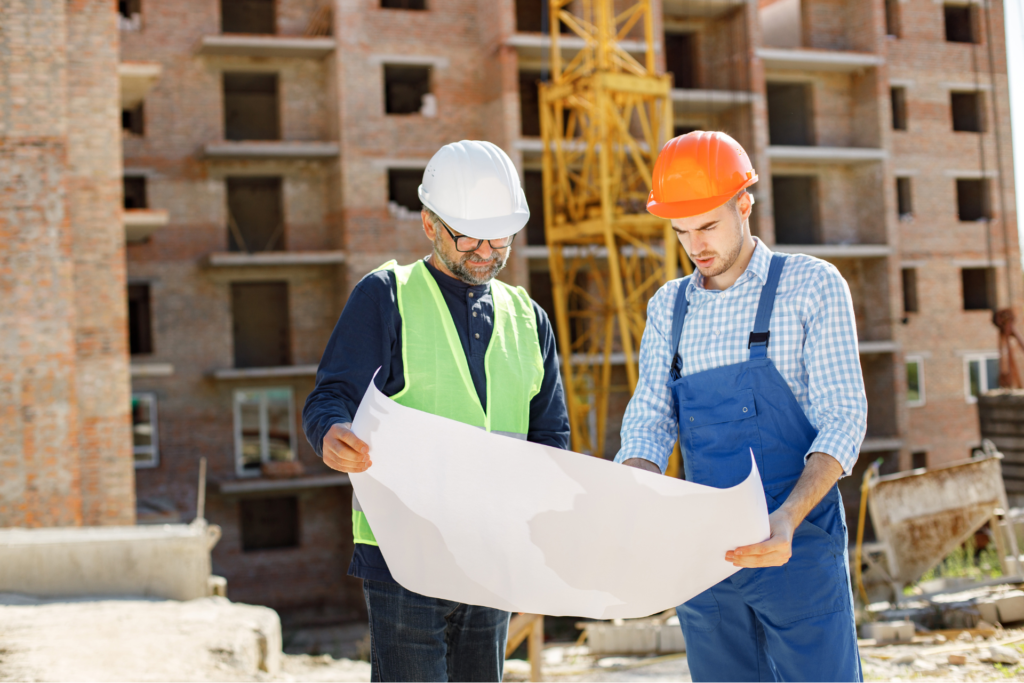
FAQs: About What To Ask A Builder
Why is it important to ask a builder if they are licensed and insured?
It’s crucial to confirm that your builder is licensed and insured to protect yourself legally and financially. A licensed builder has met industry standards and follows local building codes, while insurance ensures that you are not held liable for accidents or damages that may occur during the project.
How can I verify a builder’s previous experience and qualifications?
You can verify a builder’s experience by asking for their portfolio of completed projects and checking their credentials with local licensing boards or industry associations. Additionally, speaking to previous clients through provided references will give you insight into their work quality and professionalism.
What should be included in a builder’s quote?
A builder’s quote should be comprehensive and include a detailed breakdown of costs, including materials, labor, permits, and potential extras such as site preparation. Make sure the quote is itemized so you can understand where your money is going and identify any hidden or unexpected costs.
How do I know if a builder’s timeline is realistic?
Ask the builder about factors that could affect the timeline, such as weather, supply chain issues, or permit delays. Experienced builders should provide a clear timeline based on similar past projects. Request a list of project milestones so you can track progress and ensure things are moving on schedule.
What should be included in a written contract with a builder?
A written contract should include essential details such as the project scope, start and end dates, payment schedules, materials to be used, and any warranties offered. It should also specify how changes to the project will be handled and what happens if delays or disputes arise.
How can I avoid unexpected costs during the building process?
To avoid unexpected costs, make sure your builder’s quote is as detailed as possible, including contingencies for potential surprises. Clarify how the builder handles changes in materials, labor, or any other adjustments during the build. A good rule of thumb is to set aside 10-20% of your budget for contingencies.
What is the typical payment schedule for a builder?
Builders often use a milestone-based payment schedule, where payments are made at key stages of the project (e.g., after the foundation is laid, after framing is complete). Avoid paying a large percentage upfront. Instead, look for builders who request smaller, regular payments tied to project progress.
How do I ensure good communication with my builder during the project?
Set clear expectations for how and when communication will happen from the start. Ask if your builder prefers phone calls, emails, or in-person meetings. Make sure there’s a process in place for updates on the project’s progress and any potential issues that might arise.
What kind of warranty should I expect from a builder?
Most builders offer warranties that cover their workmanship and materials for a specific period, often ranging from 1 to 10 years. Make sure to ask about the details of the warranty, including what is covered and how any issues will be addressed after the project is complete.
How do I handle disputes or problems that arise during the build?
It’s important to have a clear dispute resolution process in your contract. This could include mediation or arbitration clauses. If a problem arises, first try to resolve it directly with your builder by discussing the issue and possible solutions. Having open, clear communication from the beginning can prevent many issues from escalating.
Conclusion
When it comes to selecting the right builder for your project, asking the right questions plays a crucial role in ensuring a smoother process, building a strong relationship with your builder, and ultimately achieving satisfying results. Taking the time to gather key information and clarifying expectations can help prevent potential misunderstandings and delays, making sure that your vision is aligned with the builder’s approach from the very start. It’s also important to trust your instincts throughout the decision-making process. Choosing a builder you feel comfortable with and can communicate openly with is essential for a successful collaboration. Don’t hesitate to ask for clarification, address any concerns upfront, and maintain open lines of communication to foster a positive working relationship. If you’re uncertain, rely on your gut feeling—select someone who makes you feel confident about the entire process. If you have any questions or personal experiences with builders, feel free to share them in the comments. And if you’re ready to take the next step, don’t hesitate to reach out to a professional builder for a consultation to turn your project ideas into reality.
About the Author:
Mike Veail is a recognized digital marketing expert with over 6 years of experience in helping tradespeople and small businesses thrive online. A former quantity surveyor, Mike combines deep industry knowledge with hands-on expertise in SEO and Google Ads. His marketing strategies are tailored to the specific needs of the trades sector, helping businesses increase visibility and generate more leads through proven, ethical methods.
Mike has successfully partnered with numerous companies, establishing a track record of delivering measurable results. His work has been featured across various platforms that showcase his expertise in lead generation and online marketing for the trades sector.
Learn more about Mike's experience and services at https://theleadguy.online or follow him on social media:

